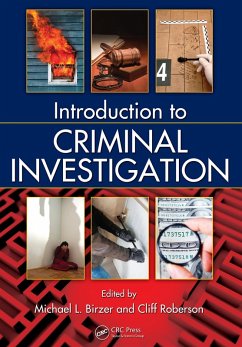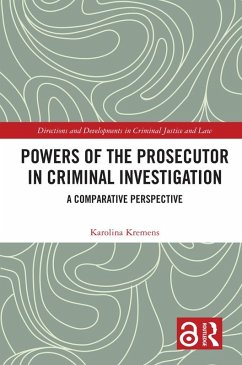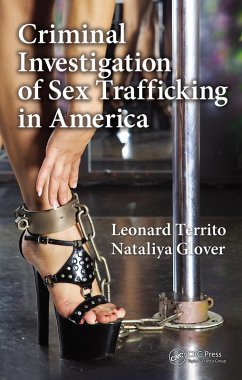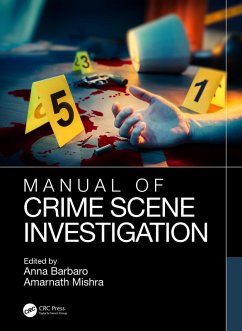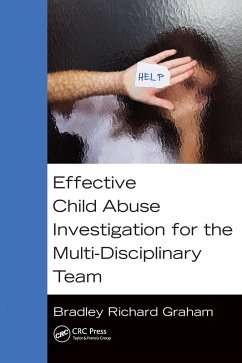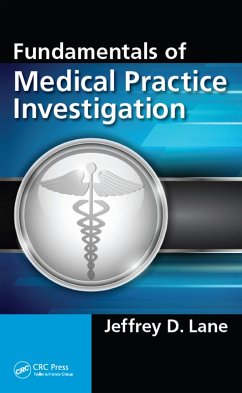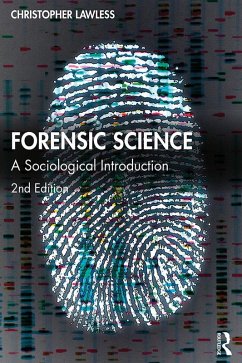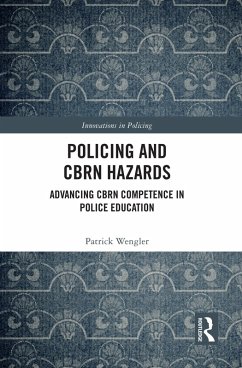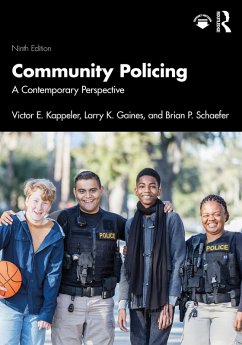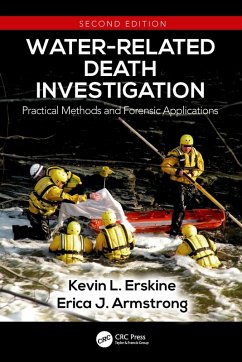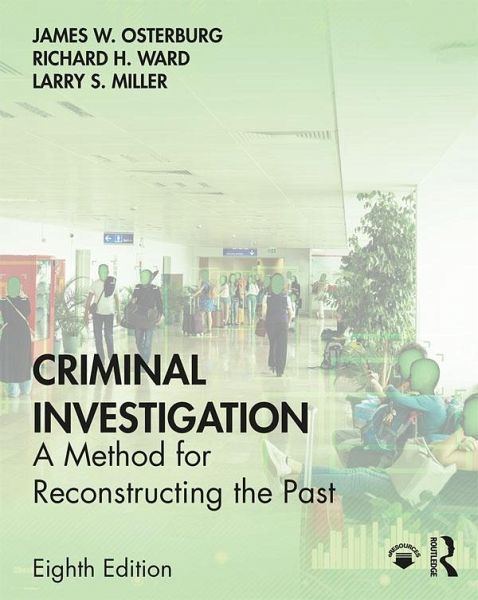
Criminal Investigation (eBook, ePUB)
A Method for Reconstructing the Past

PAYBACK Punkte
49 °P sammeln!
A classic in the field, Criminal Investigation: A Method for Reconstructing the Past, Eighth Edition, presents the fundamentals of criminal investigation and provides a sound method for reconstructing a crime based on three major sources of information: people, physical evidence, and records. By breaking information sources into these three major components, the book provides a logical approach that helps students remember and achieve mastery of these essentials. More than a simplistic introductory text, yet written in an easy-to-read, user-friendly format, it offers a broad treatment of crimi...
A classic in the field, Criminal Investigation: A Method for Reconstructing the Past, Eighth Edition, presents the fundamentals of criminal investigation and provides a sound method for reconstructing a crime based on three major sources of information: people, physical evidence, and records. By breaking information sources into these three major components, the book provides a logical approach that helps students remember and achieve mastery of these essentials. More than a simplistic introductory text, yet written in an easy-to-read, user-friendly format, it offers a broad treatment of criminal investigation.
Updated and streamlined since the prior edition, the text covers the foundations and principles of criminal investigation, analysis of specific crimes, and explores special topics including enterprise crime, arson and explosives, computers and technological crime, increasing threats and emerging crime, and terrorism and urban disorder. This discussion of contemporary and future criminal activity teaches students facts about the present as well as the skills to stay current in a rapidly changing field.
This book is indispensable for core courses in criminal investigation. Chapters include a variety of helpful charts, tables, and illustrations, as well as discussion questions that provide focus on the most important points. A glossary provides definitions for terms that have specialized meanings, and an online companion site offers an array of resources for both students and instructors.
Updated and streamlined since the prior edition, the text covers the foundations and principles of criminal investigation, analysis of specific crimes, and explores special topics including enterprise crime, arson and explosives, computers and technological crime, increasing threats and emerging crime, and terrorism and urban disorder. This discussion of contemporary and future criminal activity teaches students facts about the present as well as the skills to stay current in a rapidly changing field.
This book is indispensable for core courses in criminal investigation. Chapters include a variety of helpful charts, tables, and illustrations, as well as discussion questions that provide focus on the most important points. A glossary provides definitions for terms that have specialized meanings, and an online companion site offers an array of resources for both students and instructors.
Dieser Download kann aus rechtlichen Gründen nur mit Rechnungsadresse in A, B, BG, CY, CZ, D, DK, EW, E, FIN, F, GR, HR, H, IRL, I, LT, L, LR, M, NL, PL, P, R, S, SLO, SK ausgeliefert werden.




